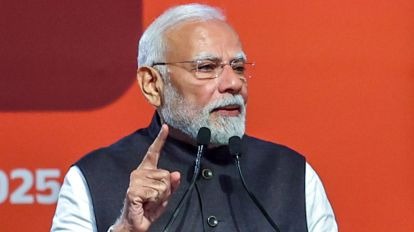In a powerful address from Bengaluru, Prime Minister Narendra Modi called on India’s tech industry to shift its focus inward—toward solving the country’s own challenges. Speaking at the inauguration of major infrastructure projects, including the Yellow Line of Bengaluru Metro and three new Vande Bharat Express trains, Modi emphasized that while Indian tech companies have earned global acclaim, the time has come to prioritize India’s needs and lead in emerging fields like AI, semiconductors, and indigenous software development.
Key takeaways from PM Modi’s Bengaluru address:
1. Indian tech firms must now focus on building products for India, not just for global markets
2. The country’s next big priority is becoming self-reliant in technology
3. Bengaluru and Karnataka should play a central role in Make in India and manufacturing
4. India’s products must meet the “Zero Defect, Zero Effect” standard—flawless quality with no environmental harm
5. India is now among the top five exporters of mobile handsets and fourth in automobile exports
6. Modi attributed India’s rise to the top five global economies to the mantra of Reform, Perform, and Transform
Infrastructure push: Metro, rail, and mobility
Modi’s visit to Bengaluru wasn’t just about tech—it was also about transit. He inaugurated:
- The 19.16-km Yellow Line of Bengaluru Metro, worth Rs 7,160 crore
- The foundation stone for Metro Phase-3, a Rs 15,610 crore project covering 44 km and 31 elevated stations
- Three new Vande Bharat Express trains connecting Bengaluru to Belagavi, Nagpur to Pune, and Amritsar to Shri Mata Vaishno Devi Katra
He also took a metro ride himself, from Ragigudda to Electronic City, symbolizing his commitment to modernizing urban mobility.
Economic strides and export milestones
Modi highlighted India’s transformation from an import-heavy economy to a global exporter:
- Electronics exports have surged from Rs 6 billion in 2014 to Rs 38 billion today
- Automobile exports have more than doubled, making India the fourth-largest exporter globally
- Total exports have risen from $468 billion in 2014 to $824 billion in 2025
- India is now among the top five economies and is on track to enter the top three
He credited this growth to clear intent, honest effort, and policy reform, reinforcing India’s position as the fastest-growing major economy.
Tech-powered defence and Operation Sindoor
Modi also praised the role of indigenous technology in national security. He cited Operation Sindoor, where Indian forces successfully destroyed terrorist hideouts deep across the border. Bengaluru’s youth and tech talent played a key role in enabling this mission, showcasing the power of homegrown innovation in defence.
Vision for Tech Atmanirbhar Bharat
Modi’s clarion call was clear: India must lead in sunrise sectors like AI, semiconductors, and deep-tech. He urged companies to:
- Accelerate development of new software and apps for domestic use
- Build products that meet global standards but solve local problems
- Invest in R&D through initiatives like the Rs 1 lakh crore Research Development and Innovation (RDI) Scheme
- Collaborate across central and state governments to uplift citizens through technology
The road ahead: Building for Bharat
Modi’s message resonated with industry leaders present at the event, including Infosys founder NR Narayana Murthy, Biocon’s Kiran Mazumdar-Shaw, and Infosys CEO Salil Parekh. As India races toward becoming a developed nation by 2047, the tech sector is being called upon to lead—not just in exports, but in empowerment.
Sources: Indian Express, Economic Times, Financial Express

